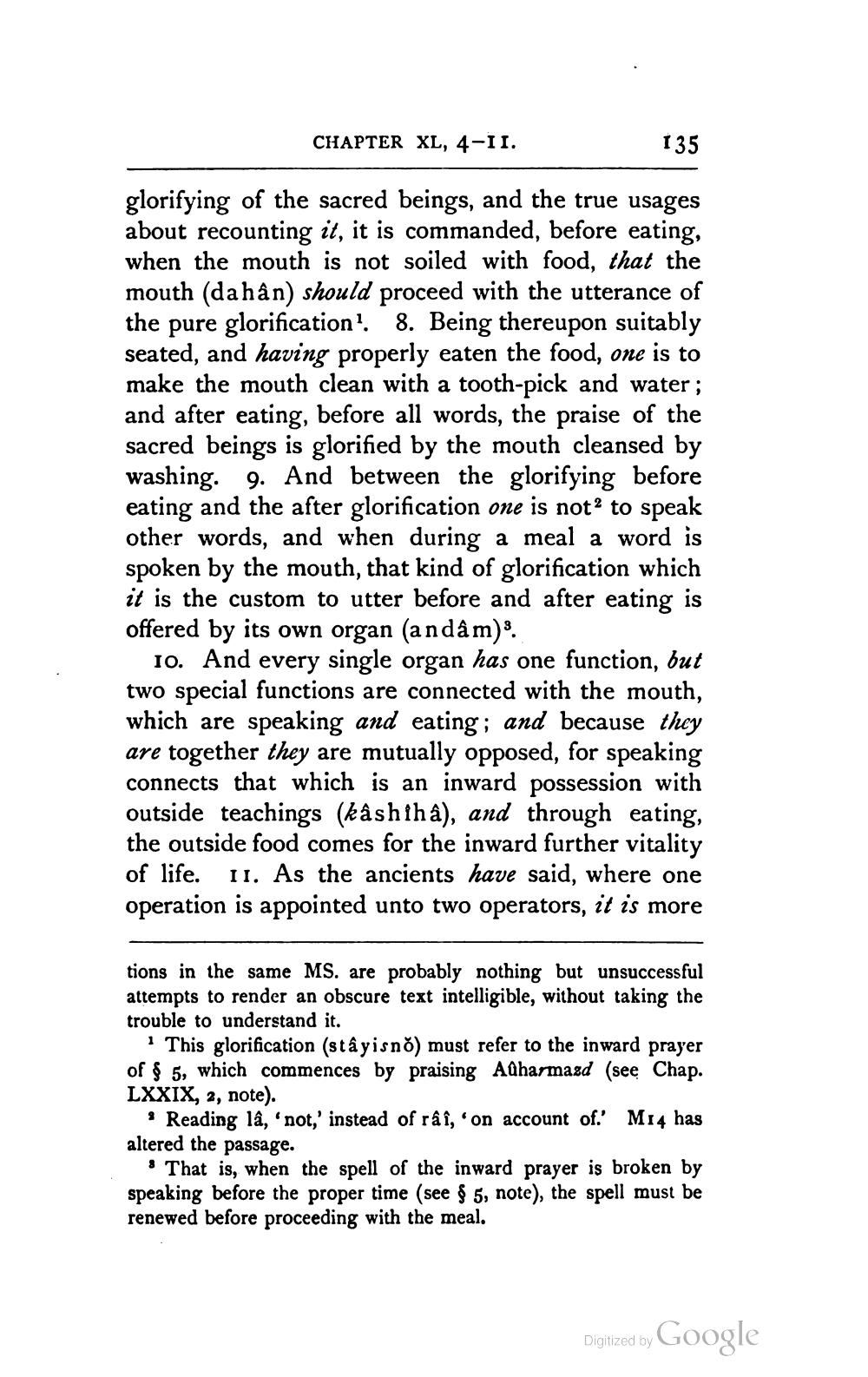________________
CHAPTER XL, 4-II.
135
glorifying of the sacred beings, and the true usages about recounting it, it is commanded, before eating, when the mouth is not soiled with food, that the mouth (da hân) should proceed with the utterance of the pure glorification?. 8. Being thereupon suitably seated, and having properly eaten the food, one is to make the mouth clean with a tooth-pick and water; and after eating, before all words, the praise of the sacred beings is glorified by the mouth cleansed by washing. 9. And between the glorifying before eating and the after glorification one is not to speak other words, and when during a meal a word is spoken by the mouth, that kind of glorification which it is the custom to utter before and after eating is offered by its own organ (a ndâm).
10. And every single organ has one function, but two special functions are connected with the mouth, which are speaking and eating; and because they are together they are mutually opposed, for speaking connects that which is an inward possession with outside teachings (kashiha), and through eating, the outside food comes for the inward further vitality of life. 11. As the ancients have said, where one operation is appointed unto two operators, it is more
tions in the same MS. are probably nothing but unsuccessful attempts to render an obscure text intelligible, without taking the trouble to understand it.
1 This glorification (stayisno) must refer to the inward prayer of § 5, which commences by praising Adharmaad (see Chap. LXXIX, 2, note).
* Reading lâ, “not,' instead of râî, on account of.' M14 has altered the passage.
That is, when the spell of the inward prayer is broken by speaking before the proper time (see $ 5, note), the spell must be renewed before proceeding with the meal.
Digitized by Google




